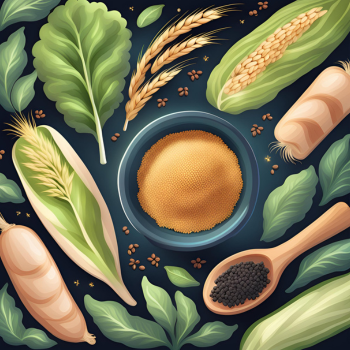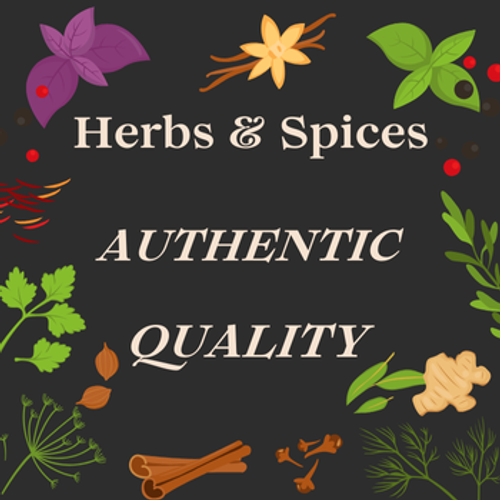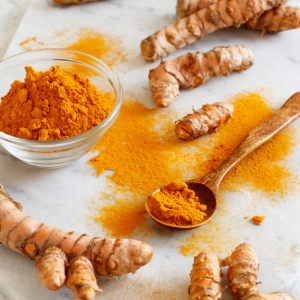A Natural Approach to Modern Healthcare
Feb 14th 2025
Traditional Herbal Medicine: A Natural Approach to Modern Healthcare
Introduction: The Timeless Power of Nature in Healing
 Imagine a world where the solution to your health problems isn’t found in synthetic pills but in the roots, leaves, and flowers of nature itself. Sounds magical, right? But this isn’t just fantasy—traditional herbal medicine has been the backbone of healing for thousands of years.
Imagine a world where the solution to your health problems isn’t found in synthetic pills but in the roots, leaves, and flowers of nature itself. Sounds magical, right? But this isn’t just fantasy—traditional herbal medicine has been the backbone of healing for thousands of years.
With more people searching for natural, chemical-free alternatives to modern medicine, herbal remedies are experiencing a powerful resurgence. Whether it’s turmeric for inflammation, ginger for digestion, or ginseng for energy, nature’s pharmacy holds secrets waiting to be rediscovered.
But here’s the real question: Does herbal medicine work, and how does it fit into today’s healthcare system? Let’s dive deep into this fascinating world and explore how these ancient remedies are making a massive comeback in modern wellness.
A Brief History of Traditional Herbal Medicine
Herbal medicine isn’t just a trend—it’s a 5,000-year-old tradition with deep roots in civilizations across the globe.
Ancient China & Traditional Chinese Medicine (TCM)
China has one of the richest herbal traditions, with Traditional Chinese Medicine (TCM) using herbs like Ginseng, Ginkgo Biloba, and Astragalus to restore balance in the body. The concept of Yin and Yang emphasizes holistic healing rather than just treating symptoms.
Ayurveda: India’s 5,000-Year-Old Science
Ayurveda, the ancient healing system of India, focuses on herbal remedies tailored to individual body types (Doshas). Turmeric, Ashwagandha, and Triphala are powerhouses in Ayurveda, known for their anti-inflammatory, adaptogenic, and digestive benefits.
Western Herbalism & Native Traditions
In Europe and North America, herbal remedies were passed down through generations. Indigenous cultures relied on herbs like Echinacea (immune booster), Peppermint (digestion aid), and Chamomile (calming herb) for everyday wellness.
Fast forward to today, and we see herbal medicine influencing modern pharmaceuticals, proving that nature has always held the answers.
 Why Herbal Medicine is Making a Huge Comeback
Why Herbal Medicine is Making a Huge Comeback
In today’s fast-paced world, where stress, chronic diseases, and drug side effects are common, people are shifting towards natural, sustainable healing methods.
Here’s why:
✅ Fewer Side Effects – Unlike synthetic drugs, herbs work with the body’s natural chemistry, reducing the risk of adverse reactions.
✅ Holistic Healing – Herbs don’t just treat symptoms; they address the root cause of health issues.
✅ Affordable & Accessible – Many herbs can be grown in your backyard or found in health stores.
✅ Sustainability – As awareness grows about the environmental impact of pharmaceutical waste, herbal medicine offers an eco-friendly alternative.
The Science Behind Herbal Medicine: Does It Really Work?
The biggest myth surrounding herbal medicine is that it lacks scientific backing. But research tells a different story.
Clinical Studies on Herbal Remedies
Modern science is catching up with ancient wisdom, and hundreds of studies now confirm the effectiveness of herbs:
- Turmeric (Curcumin): Proven to reduce inflammation, support heart health, and even help prevent Alzheimer’s.
- Ginseng: Shown to improve energy levels, cognitive function, and reduce stress.
- Ginkgo Biloba: Boosts memory and protects against neurodegenerative diseases.
- Echinacea: Strengthens immunity and shortens the duration of colds.
- Ginger: Helps with digestion, nausea, and reduces muscle pain.
Fact: Nearly 40% of prescription drugs today are derived from plant compounds. Aspirin? Derived from Willow Bark. Metformin? From French Lilac. Nature has always been our first pharmacist!
The Top 5 Most Powerful Medicinal Herbs & Their Benefits
1. Ginseng – The Ultimate Energy Booster
Ginseng is a powerhouse herb that:
- Boosts energy and fights fatigue
- Enhances brain function and memory
- Strengthens the immune system
Best Way to Use: Take Ginseng tea in the morning for sustained energy without the caffeine crash!
2. Turmeric – The Golden Healer
Turmeric is famous for its anti-inflammatory and antioxidant properties. It helps:
- Reduce arthritis pain
- Improve skin health
- Protect the heart
Best Way to Use: Mix turmeric with black pepper (piperine enhances absorption by 2000%!).
3. Ginkgo Biloba – The Brain Enhancer
Ginkgo is one of the oldest medicinal trees and:
- Improves blood circulation
- Enhances memory and cognitive function
- Supports eye health
Best Way to Use: Take as a supplement or add Ginkgo extract to your tea.
4. Echinacea – The Immunity Shield
Echinacea is widely used to:
- Strengthen the immune system
- Prevent and reduce cold symptoms
- Fight infections naturally
Best Way to Use: Drink Echinacea tea daily during flu season!
5. Ginger – The Digestive Soother
Ginger is a natural remedy for nausea, bloating, and inflammation. It helps with:
- Digestion and gut health
- Reducing muscle pain
- Lowering blood sugar levels
Best Way to Use: Add fresh ginger to hot water with lemon for a digestive detox tea.
The Integration of Herbal Medicine in Modern Healthcare
Globally, herbal medicine is gaining recognition. Many hospitals now incorporate herbal treatments, and doctors recommend herbal supplements alongside traditional drugs.
Big Pharma is catching on – Many drug companies extract plant compounds to create medicines, proving that herbal medicine is more than just a "fad."
Holistic Health Clinics & Herbalists are working side by side with doctors, integrating traditional and modern medicine for the best patient outcomes.
Challenges & Controversies
Despite its growing popularity, herbal medicine faces some hurdles:
⚠️ Quality Control Issues – Not all herbal products are pure; some are mixed with harmful additives.
⚠️ Dosage Uncertainty – Unlike pharmaceuticals, herbal dosages vary, making standardization difficult.
⚠️ Medical Skepticism – Some doctors remain hesitant due to limited clinical trials on certain herbs.
Pro Tip: Always buy herbal supplements from trusted, third-party tested brands.
The Future of Herbal Medicine
What’s Next? Herbal medicine is set to revolutionize the healthcare industry with:
- AI-driven herbal pharmacology to match the right herbs to specific conditions.
- More clinical trials to prove efficacy and safety.
- Government regulations ensuring quality herbal products.
As people seek more natural alternatives, herbal medicine will continue to rise as a preferred healing method.
Conclusion: The Return to Nature’s Medicine Cabinet
Herbal medicine is more than an alternative—it’s a proven, time-tested way to maintain health naturally. While modern medicine is essential, integrating herbs into our daily routine can enhance our well-being in countless ways.
Would you try herbal medicine?
FAQs
Is herbal medicine safe?
Yes, when used correctly! Always consult a doctor before trying new herbs.
Can I use herbs with prescription meds?
Some herbs interact with medications. Speak with a healthcare provider first.
What’s the best herb for stress relief?
Ashwagandha and Ginseng are excellent adaptogens for stress management.
Where can I buy quality herbal supplements?
Look for organic, third-party-tested brands at health stores or online.
How long does it take for herbs to work?
Some herbs work immediately, while others take weeks to show effects.



